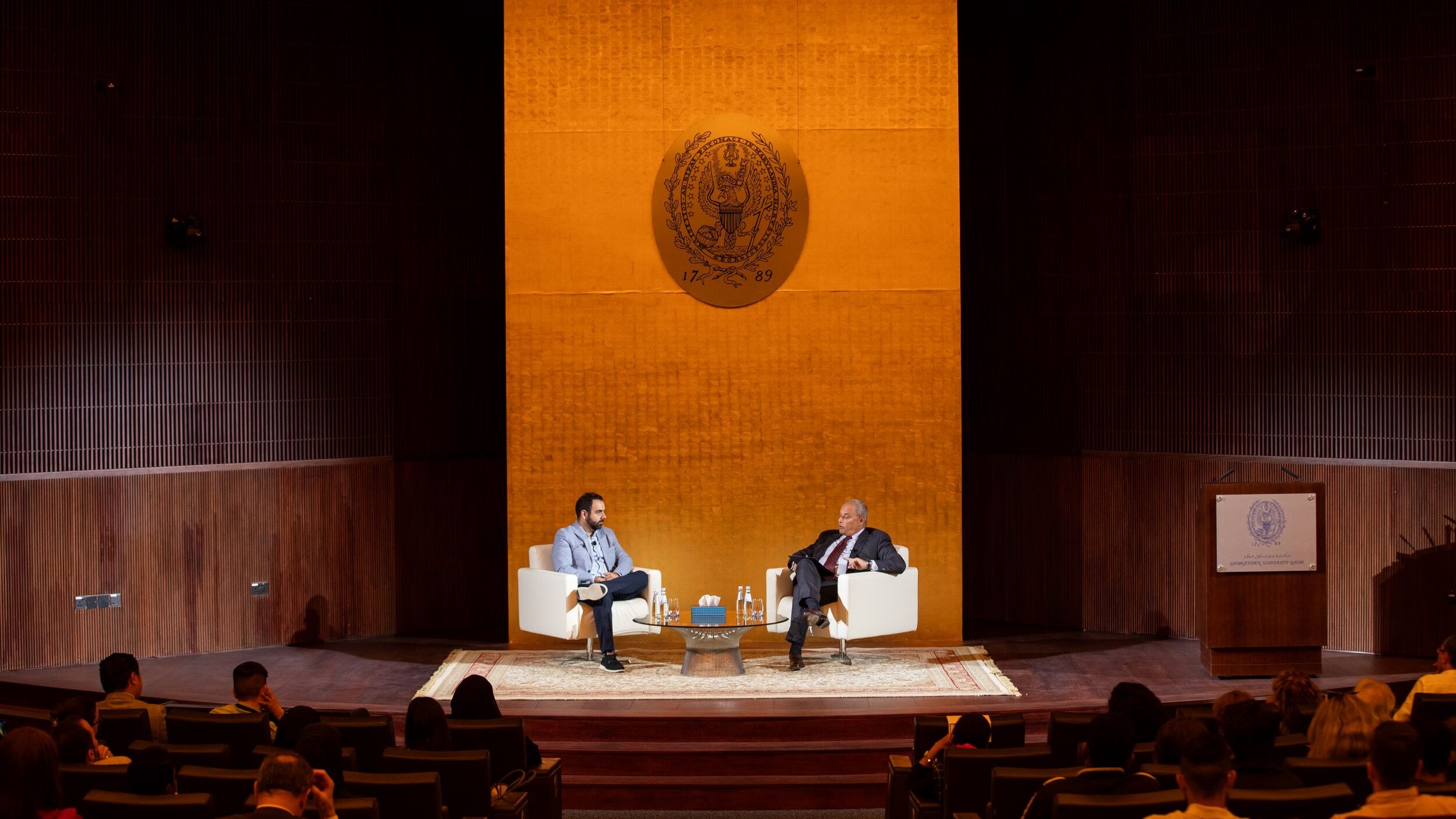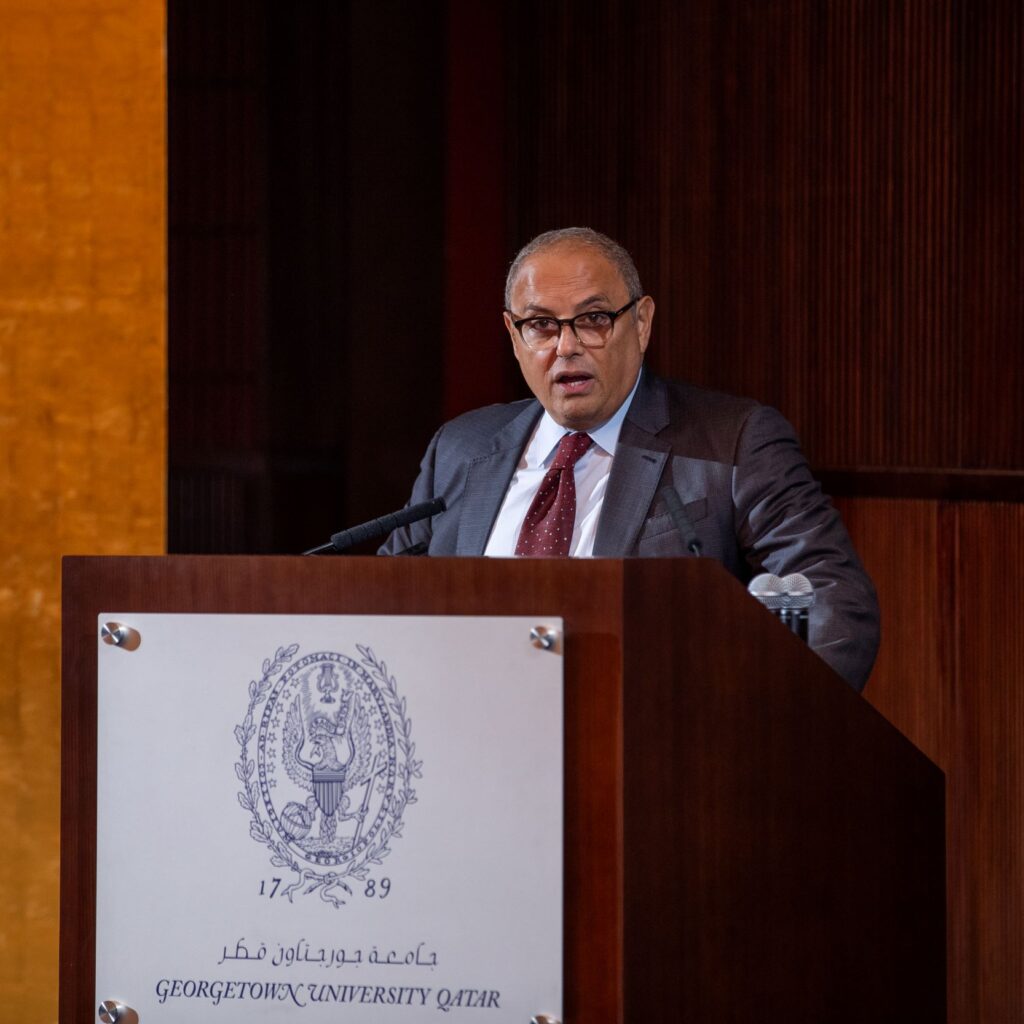Lecture Explores Landmark UN Resolution Offering Potential Pathway to Peace in Palestine

A month after 57 states made submissions to the International Court of Justice (ICJ) as it prepares its advisory opinion on the legal consequences of Israel’s occupation of Palestinian territory requested by the UN in December 2022, Omar Shakir, the Israel and Palestine Director at Human Rights Watch, shared his insights on what’s at stake with the ICJ advisory opinion, as well as the International Criminal Court’s Palestine probe.
His talk, titled “International Courts and Palestine: Challenges and Opportunities,” was hosted by Georgetown University in Qatar, where Shakir is currently a Visiting Fellow. Following a warm introduction by the dean of GU-Q, Dr. Safwan Masri, Shakir addressed the audience of faculty, students, staff, and members of the public, delving into the legal issues in front of the world’s most prominent legal institutions and on the road to justice and accountability in Israel/Palestine. Following the talk, the audience had a chance to ask questions during a session moderated by Dr. Masri.
The UNGA resolution requests the ICJ’s opinion on Israel’s prolonged occupation, its policies and practices, and their impact on Palestinians and their rights. It also seeks to understand how these actions affect occupation’s legal status and their consequences for member nations and the UN.
“The issue of human rights has become highly politicized, much to its detriment. Politics is always partisan, while human rights are universal and should be universally inviolable,” said Dr. Masri.“Mr. Shakir is a globally recognized human rights advocate, whose presence on our campus offers GU-Q students a unique opportunity to engage with an experienced practitioner of his knowledge and stature. Inviting the public to his lecture underscores our belief that justice is a reality, not an abstract concept,” Dr. Masri continued.

Road to Accountability Under the Law
The talk, which also addressed other international legal endeavors aimed at addressing human rights concerns within the Israel-Palestine context, offered attendees a glimpse into the challenges and opportunities of pursuing accountability for violations of international law.

“The world’s most prominent courts have an unprecedented opportunity to address the decades-long effort to rewrite the basic rules of international law and maintain a wall of impunity. For victims of serious abuses, the stakes couldn’t be higher,” said Shakir.
Visiting Fellowship
In his role as a Visiting Fellow, Shakir is also teaching a one-credit course titled Mightier than the Sword? The Human Rights Challenge to Israel’s Apartheid, that offers students the opportunity to explore the role of human rights work in situations of protracted conflict and in challenging systematic repression. He is also offering a workshop for students interested in advocacy on “Human Rights Fact-Finding and Documentation,” later in the week.